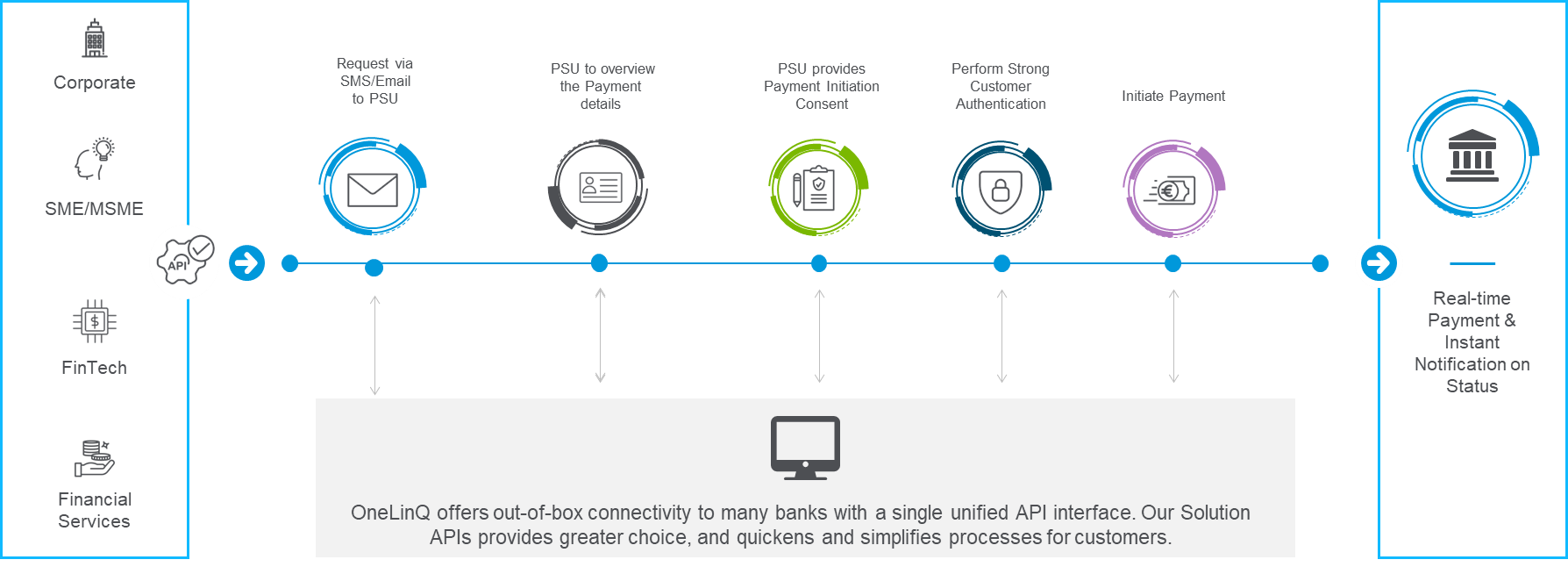Payment Request
Summary
OneLinQ Payment Request API facilitates Customer to create payment request through SMS /Email to Payer. Payment Request solution use Open Banking/Faster Payment/SEPA Instant payment or equivalent real time payment rail to enable the online transfers and inform the Customer instantly of the payment initiation.
Key Features
1. Secure data access
2. Alternative for cash-on-delivery and point-of-sale payments
3. Instant Notification of Payment Initiation
4. Results in JSON/PDF
5. Compliance with regulations
6. REST API Integration
7. White Labelling support
8. Multilanguage support
Payment Request APIs
API Name | API Endpoint | API Description |
Payment Initiation Request | POST /createPayment | API to initiate creating the payment request. |
Get Payment Status | GET /paymentStatus/{paymentId} | API to get the status of the specific payment ID. |
Payment Request Flow Diagram
Payment Request Steps
Step 1: Payment Request
The customer sends the payment request to OneLinQ by calling the payment request API with the Payer’s email ID, amount & currency. Notification will be sent to the Payer once the payment request is successfully initiated.
Step 2: Redirect Payment Request
On click of Pay by Bank in SMS/Email, the Payer will be redirected to the Hosted Payment Pages (HPP) which displays the payment details for the Payer to review.
Step 3: Payment Initiation Consent
The payer can review the payment request, provide bank details and consent, and confirm to proceed further or deny the payment request.
Step 4: Initiate Payment
OneLinQ will use the PSD2 API interface of the nominated Payer bank to initiate the payment.
Step 5: Strong Customer Authentication
In case if the Payer bank asks for SCA then OneLinQ will support all the possible three options of Authentication viz. Embedded (Default), Re-directed, De-coupled.
Step 6: Execute the Payment
The bank will execute the payment and send the money to the Customer’s account after it is successfully authorized by the Payer.
Step 7: Payment Confirmation
OneLinQ displays a confirmation page with the status of the request. In the case where the status of the payment is “pending” then OneLinQ will keep polling the status from the Payer bank till the final status is received. The Customer can fetch the status from the status API or use Payment Webhook API which notifies the Customer about the current status.

